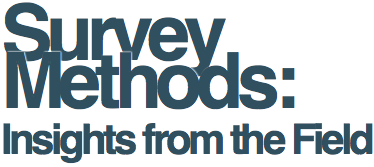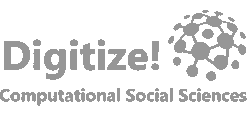Challenges Conducting Cognitive Interviews in Low and Middle Income Countries: A Case Study with Older Adults in Lebanon
The global increase in population ageing, especially in Low and Middle Income Countries (LMICs), has created greater need for population-based surveys that document the health and social requirements of older adults in this context. The surveys fielded in response to this need ask questions adapted from ongoing surveys in High Income Countries; hence it is important to pretest the adapted questions for interpretability and cultural appropriateness using methods such as cognitive interviewing. The aim of this paper is to highlight challenges in the administration of cognitive interviews in LMICs with older adults, based on our pretest of a new population …
challenges conducting cognitive interviews in Lebanon, challenges conducting cognitive interviews with older adults, cognitive interviews, cognitive interviews in LMIC, cognitive interviews of older adults, low and middle income countries (LMIC), survey research field methods






